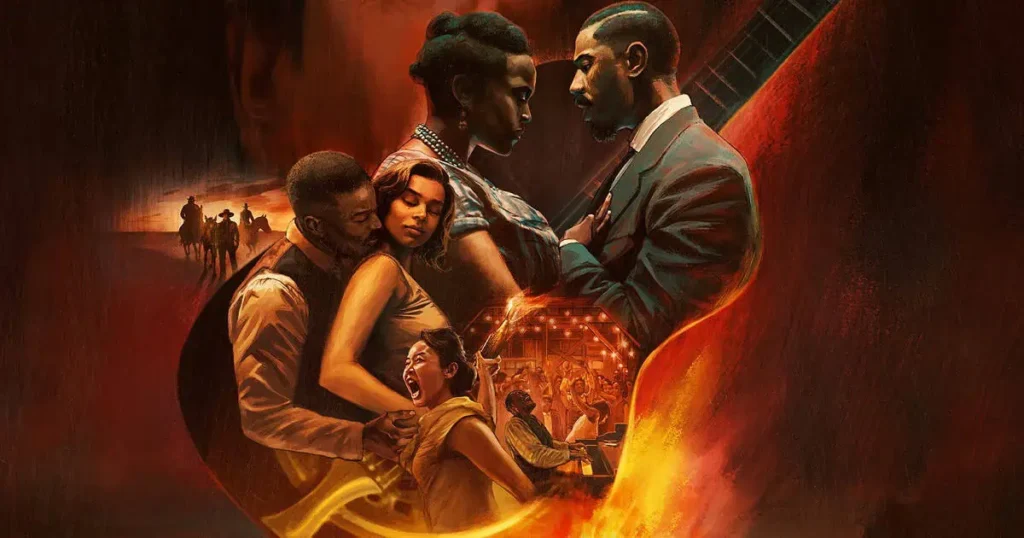Ryan Coogler’s Sinners had a massive opening weekend, dominating the box office as the number one movie with $48 million in its first few days, and a staggering $61 million globally.
The supernatural thriller also marked a milestone as the biggest debut for an original film since Jordan Peele’s Us in 2019, proving that original stories can still pack a punch. What’s more, Sinners is the only horror film in over 35 years to receive an “A” on CinemaScore. The movie also boasts an impressive 98% average on Rotten Tomatoes.
Coogler is once again reminding Hollywood that originality still holds weight—and when it’s deeply rooted in the Black experience, it resonates both culturally and commercially.
The buzz surrounding Sinners, starring Michael B. Jordan, Coogler’s frequent collaborator, is more than just hype. It’s a signal. Audiences are tired of the constant flood of sequels, reboots, and recycled superhero narratives that dominate the box office.
The greenlighting of Sinners represents a rare move by a major studio to bet on something fresh, something risky, and—most importantly—something Black.
For years, Hollywood has operated under the false assumption that only certain types of stories are bankable, typically those centered on white leads, familiar plotlines, and intellectual property with decades of history. But what Sinners represents is the growing awareness that audiences are craving more than nostalgia.
They’re hungry for new mythology, gutsy perspectives, and narratives that reflect the diversity of the world we live in.
Coogler’s track record already proves this point. Fruitvale Station told a deeply personal story rooted in the Black experience, and it resonated globally. Creed took a legacy franchise and injected it with Black soul and modern relevance. Black Panther became a cultural phenomenon not just because it was a superhero film, but because it was a distinctly African and unapologetically Black vision of heroism, power, and legacy.
Now, with Sinners, Coogler is taking that vision even further, crafting an entirely original story, rooted in the supernatural and Southern traditions, and starring a predominantly Black cast. He’s building IP from the ground up, something Hollywood often reserves for white creatives.
This is more than a film; it’s an investment in a new narrative universe, one shaped by Black imagination and perspective.
It’s ironic, really. Black creators have long been the originators of global cultural trends. From music to fashion to internet slang, Black influence is undeniable. Yet, when it comes to IP—the lifeblood of Hollywood’s economic engine—Black storytellers are too often left out of the conversation.
Coogler is disrupting that pattern. He’s not just directing a film; he’s planting a flag.
Sinners is a necessary disruption to Hollywood’s stale formula. It proves that risk-taking is rewarded when it comes with vision and authenticity. And it shows that audiences—especially Black audiences—are not just passive consumers of content; they are cultural validators, trendsetters, and economic drivers.
The success of Sinners could very well reshape how studios think about originality and Black creativity. But the message should already be clear: Black stories don’t need to fit into old boxes to be profitable. They are the box. And it’s time Hollywood started treating them as such.



